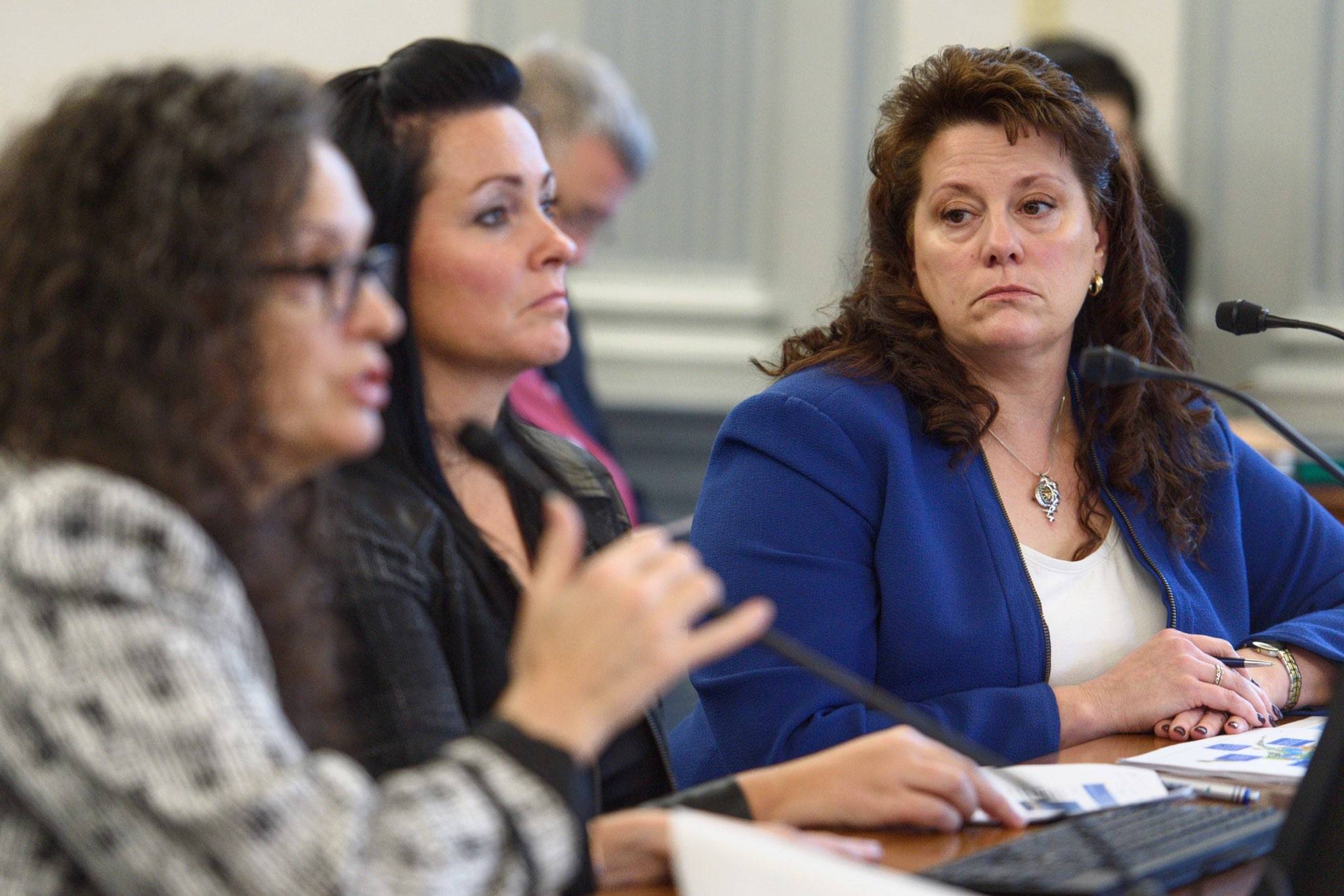State officials on Thursday said that 2019 is expected to have the most oil exploration and production rig activity in 20 years, but it will take a while for the state to cash in on that increased investment.
In August 2018, research firm IHS Markit labeled Alaska’s North Slope as a “super basin,” and estimated that crude oil output could increase by as much as 40 percent in the next eight years. Even before that, bullish ConocoPhillips officials were declaring an “exploration renaissance” for North Slope oil.
Department of Natural Resources officials spoke to the Alaska Senate Finance Committee on Thursday, explaining their excitement about the future of oil in Alaska. DNR Deputy Commissioner Sara Longan was one of them.
“The classification of the North Slope as a super basin is a pretty big darn deal,” Longan said in an interview after the meeting, “and there’s so much undiscovered potential in Cook Inlet also, that industry’s going to keep looking at Alaska to invest money.”
Graham Smith, the permitting section manager for the Division of Oil and Gas, said in a phone interview Friday that the DNR presenters were actually fairly conservative during their Thursday presentation. They said there could be more than 15 oil rigs operating in the North Slope and Cook Inlet in 2019, but Smith said there could be up to 20 operating.
At the highest production time in 2018, Smith said, 11 rigs were running.
“That would be a high, certainly for the last 20 years, probably much longer than that,” Smith said.
While senators were pleased to hear the news, they were hesitant to get overly enthusiastic. Sen. Natasha Von Imhof, R-Anchorage, said in an interview that state officials should “manage their expectations” when it comes to oil.
During her portion of the presentation, Division of Oil and Gas Director Chantal Walsh acknowledged that just because there’s exploration doesn’t mean money is about to come streaming in.
“Exploration, though, doesn’t immediately lead to production,” Walsh said. “In other words, it doesn’t lead immediately to adding money to the state general fund but it is an exciting indication of the component of our state’s oil and gas, which is a large part of our financial stability in the private world.”
Oil revenues for the general fund are expected to dip in the coming fiscal year from $2.211 billion in the current year, to $1.688 billion (23.6 percent), according to Tangeman’s presentation Wednesday.
[Volatile oil market prompts conservative forecasts]
Finance Committee Chair Sen. Bert Stedman, R-Sitka, took a no-nonsense approach to the meeting, running it tightly and speaking frankly as he interpreted the presentations. When the DNR speakers pointed to a particular project — ConocoPhillips’ Willow development on the west end of the North Slope — Stedman specifically asked when the project might start resulting in a net positive to the state.
Walsh said the project will likely start resulting in the state making money in 2026.
“So what you’re telling me is I’d better not expect revenue two years from now to help us get out of this ditch,” Stedman said, referring to the state’s uncertain financial situation. Gov. Mike Dunleavy’s first state budget included a $1.6 billion deficit.
“That’s correct,” Walsh replied.
Stedman referred to the state’s budget situation as “a more-than-immediate issue in the middle of the table this year and next year.” During a Wednesday meeting, Stedman said this year’s Senate Finance Committee is larger than it has been in the past decade due to the complexities of the current budget situation.
The committee spent a couple days during the first week of session discussing how oil and oil prices factor into the budget process. During his Wednesday presentation to the committee, Tangeman said oil prices experience “wild swings” and that Gov. Mike Dunleavy’s administration is taking a conservative approach to forecasting oil revenues. This is to avoid making an oversized budget.
Overall, though, those at Thursday’s meeting came out of it with high spirits. Von Imhof said in an interview that she was encouraged by both Tangeman’s presentation Wednesday and by the DNR presentations on Thursday, saying she’s looking forward to bringing more jobs to the North Slope as exploration increases.
“I’m really excited about it,” Von Imhof said. “I think the arrows are going in an upward direction and the leading indicators are proving positive.”
• Contact reporter Alex McCarthy at 523-2271 or amccarthy@juneauempire.com. Follow him on Twitter at @akmccarthy.

